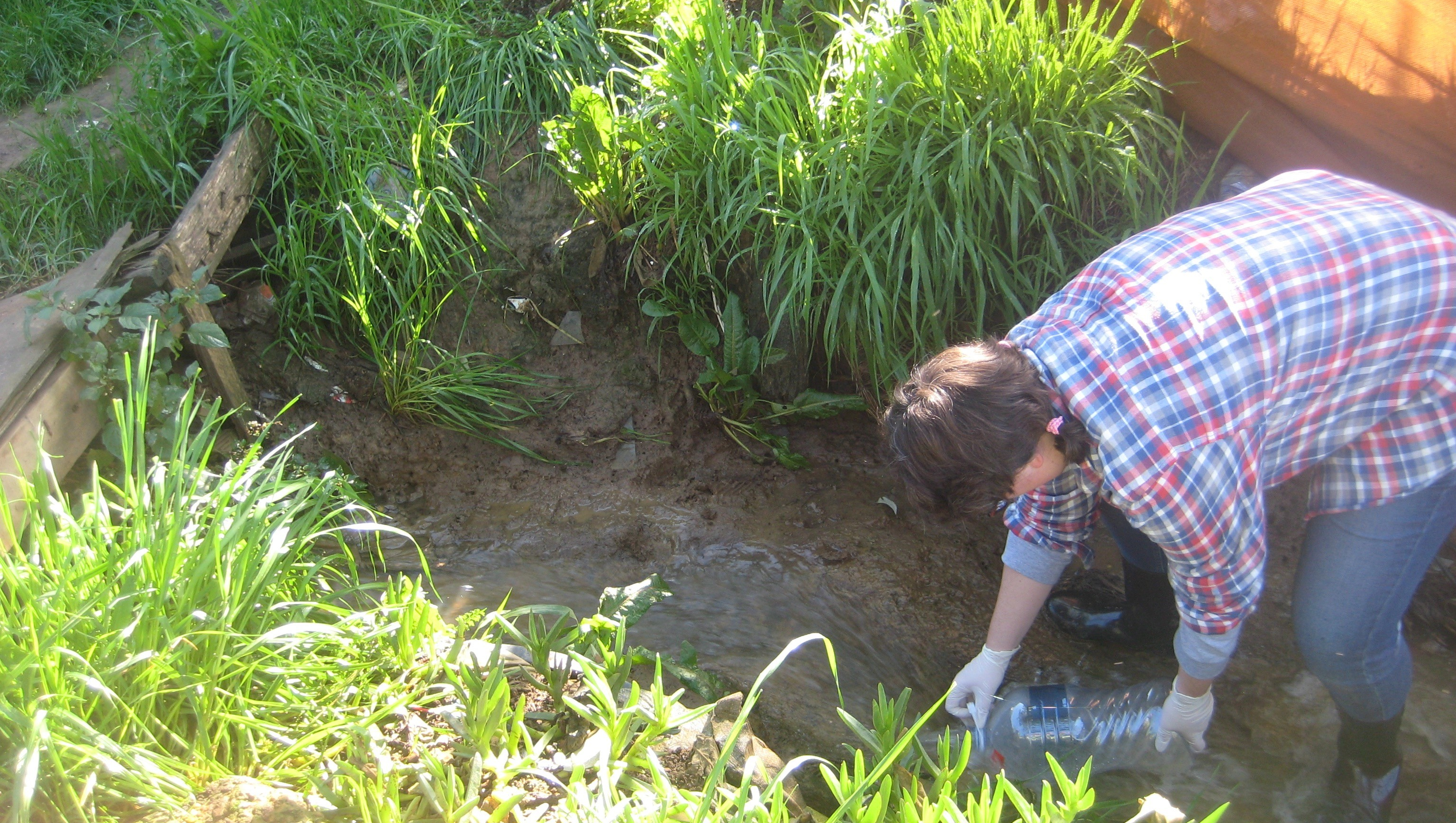Assessment and mitigation of stormwater runoff in an informal settlement
We will establish management strategies for stormwater runoff within Enkanini informal settlement in Stellenbosch and contribute towards a global risk map.

Aims:
To investigate how stormwater runoff quality (chemical and microbiological) in an informal settlement is influenced by anthropogenic and environmental factors.
Understand the links between the hydrology and microbiology in a peri-urban informal settlement
Objectives:
Establish a monitoring programme and undertake in-situ field measurements of water quality and quantity
To characterise the temporal variations in pollutants in runoff between rain events
To characterise the spatial variations with regard to varying locations around a catchment
Determine the highest areas of risk from stormwater runoff in Enkanini through the development of a risk map
Project outline
One of the biggest global health problems today is that posed by urban conditions, most significantly in developing countries, where informal settlements are prevalent. Within informal settlements, the lack of infrastructure including sanitation and sewage facilities, can generate serious problems for health and the environment. Contaminated water is one such problem which can lead to major health issues, most significantly diarrhoea and diarrhoeal diseases, with 1.7bn cases of diarrhoeal disease every year where 88% of these cases are the result of water contamination. Stormwater runoff is a major influence in water pollution as it impacts the mobilisation and transport of pathogens and chemicals and it is necessary to understand the processes and characteristics of runoff to mitigate the risks from it. The study investigates how stormwater runoff quality and quantity, in an informal settlement, are influenced by various anthropogenic and environmental factors and from this, understand the inter-relationships between hydrology, geochemistry and microbiology in a peri-urban area.
This research is based in Enkanini, an informal settlement near Stellenbosch, South Africa, where water samples were collected and analysed during the wet winter seasons of 2016 and 2017. Sample site selection was based upon catchment analysis using DEM data to determine the most suitable and key locations. Data collection within Enkanini comprised of two methodology sections for water quality (geochemical and microbiological components) and water quantity (hydrological component).
Science
This project aims to fill the knowledge gap that exists regarding both general background on water quality of stormwater runoff in informal settlements, as well as an understanding of the runoff within settlements. Whilst varied research has been undertaken on runoff in urban and rural areas, there is a lack of research undertaken on runoff within informal settlements and slums. This project will deliver on developing an understanding of the influences and various factors which impact stormwater runoff in an informal settlement, and this provides the new science in a relatively unresearched topic. In order to mitigate the detrimental impacts that runoff has within these areas and the surrounding environments, it is important to have a full understanding of the processes and characteristics which influence it. The output from this project will be the start of a framework of the factors which influence runoff in an informal settlement, to be then used when developing management and mitigation techniques, which can then be applied to other settlements globally.
The scientific outputs achieved so far include being second author on a paper published in the journal Critical Reviews in Environmental Science and Technology, attendance at various conferences throughout the three years and being awarded the best presentation prize at the British Hydrological Society Conference in 2018. The aim is to publish the outcomes of this research, with currently two journal papers planned.
Impact
This project is important for society because of the significant and detrimental influence that the pollutants within stormwater runoff can have upon health and the environment. On an immediate local scale, it is hoped that this project can be used for the implementation of mitigation and management strategies reduce the pollutant levels in runoff within Enkanini informal settlement in Stellenbosch. On a broader scale, the data collected in Enkanini and the subsequent analysis from this can be used to identify the potential impactors upon runoff and the factors can then be used to develop a framework for informal settlements globally. This framework aims to identify the factors which generate the most risk with pollution and subsequently detect the areas where mitigation should be focussed to reduce the damaging impacts from runoff.
This PhD project is supervised by Dr Lee Bryant from the Department of Architecture & Civil Engineering.

